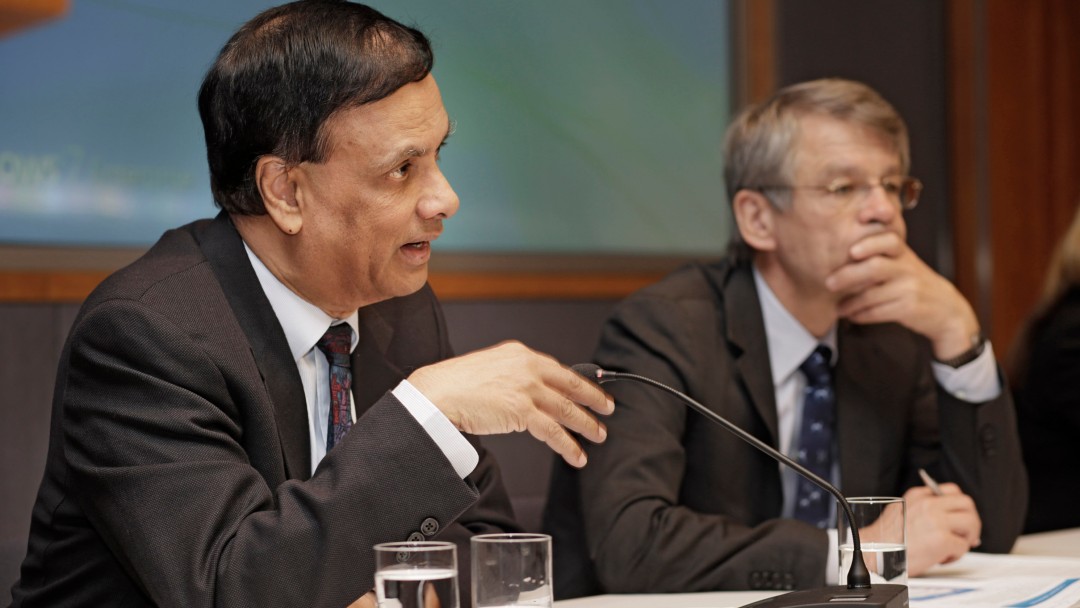News from 2016-05-10 / KfW Development Bank
Private sector projects achieve development successes and generate profits
Vinod Thomas, chief evaluator at the ADB, was a guest speaker at the KfW Development Forum
Vinod Thomas, Director General of Independent Evaluation at the Asian Development Bank (ADB), spoke at the KfW Development Forum on 3 May about the successes of ADB projects and the development of economic growth. The key focus was on how sustainable growth can contribute to human well-being in the broadest sense.
Thomas stressed that growth cannot be defined solely in economic terms. Climate change has led to a dramatic increase in the numbers of natural disasters, particularly in Asia, which have in turn resulted in a high number of casualties. This shows that growth has reached a limit that can only be overcome if environmental protection and social inclusion are also taken into consideration in addition to economic growth. This also applies to development cooperation projects and programmes, which aim to improve living conditions in a sustainable way. Vinod Thomas does not consider the requirements needed to ensure workplace safety and environmental and health protection to be at all costly: according to the ADB’s calculations, expenditure for such standards corresponds to only three or four percent of project costs. The benefits that could be gained, however, would triple.
The Paris Agreement, the SDG Agenda and the intended nationally determined contributions (INDC) by the individual states constitute useful starting points for the optimal allocation of financial resources, explained Thomas. However, all development partners must work in close coordination to achieve synergies, and the private sector must also be involved as a driver of innovation. ADB evaluations show that 60 % of the ADB’s private sector projects generated both high developmental impacts as well as profits. According to Thomas the funds are available; the only concern is putting them to use in a meaningful way.
Ingrid-Gabriela Hoven, Director-General for Global Issues, Sector Policies and Programmes at the Federal Ministry for Economic Cooperation and Development, commented on the conclusions drawn by Vinod Thomas from the perspective of German development cooperation. She compared the challenges brought on by climate change with those of the industrial revolution – but for 50 million people in Southeast Asia alone, it is a question of their very existence. She pointed out that the use of fossil fuels must be reduced in order to achieve the targets set for reducing greenhouse gases. The Federal Ministry for Economic Cooperation and Development will therefore consistently refrain from financing new coal power plants and will concentrate on building up a climate-friendly portfolio. All projects should thus be examined to determine their impact on the climate and whether they are compatible with the 1.5 degree target. Moreover, the partner countries should be supported in formulating and implementing their proposed national climate contributions.
The participants at the event came to the conclusion that growth should be defined and measured in qualitative terms. In this context, some old words of wisdom from Mahatma Gandhi are particularly poignant, and were quoted by Vinod Thomas in his speech: "Speed is irrelevant if you are going in the wrong direction".

